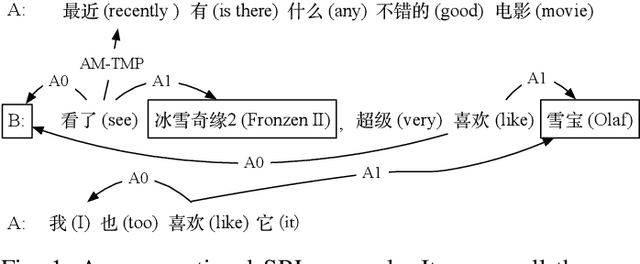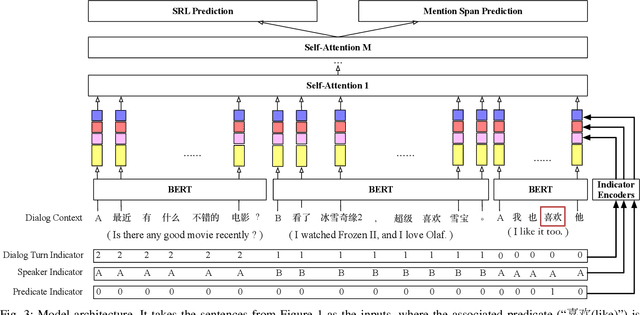Conversational Semantic Role Labeling
Paper and Code
Apr 11, 2021



Semantic role labeling (SRL) aims to extract the arguments for each predicate in an input sentence. Traditional SRL can fail to analyze dialogues because it only works on every single sentence, while ellipsis and anaphora frequently occur in dialogues. To address this problem, we propose the conversational SRL task, where an argument can be the dialogue participants, a phrase in the dialogue history or the current sentence. As the existing SRL datasets are in the sentence level, we manually annotate semantic roles for 3,000 chit-chat dialogues (27,198 sentences) to boost the research in this direction. Experiments show that while traditional SRL systems (even with the help of coreference resolution or rewriting) perform poorly for analyzing dialogues, modeling dialogue histories and participants greatly helps the performance, indicating that adapting SRL to conversations is very promising for universal dialogue understanding. Our initial study by applying CSRL to two mainstream conversational tasks, dialogue response generation and dialogue context rewriting, also confirms the usefulness of CSRL.
 Add to Chrome
Add to Chrome Add to Firefox
Add to Firefox Add to Edge
Add to Edge